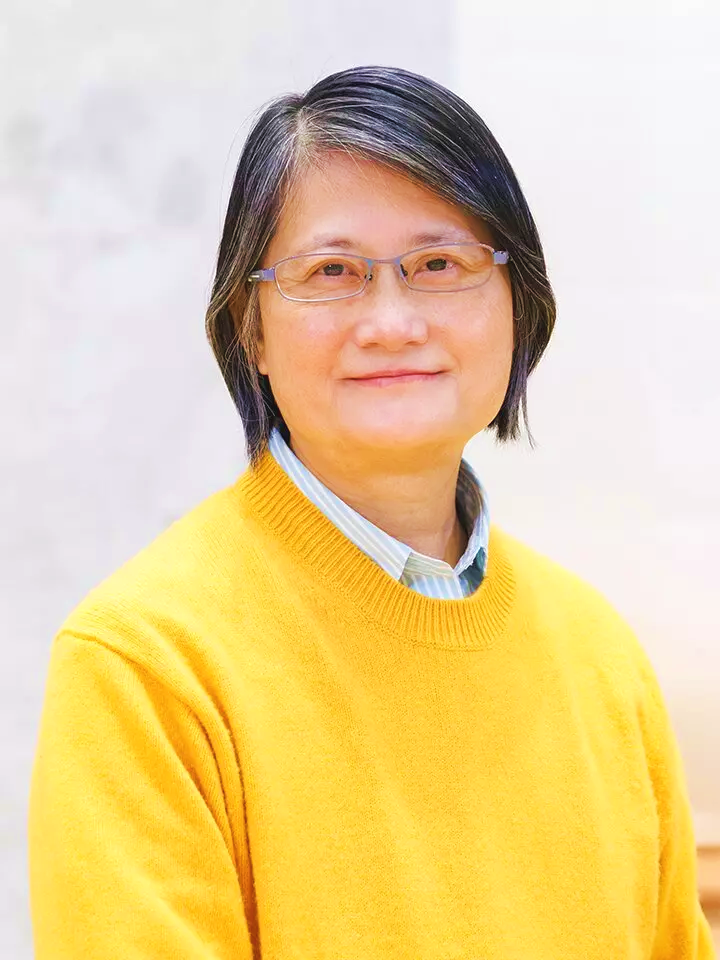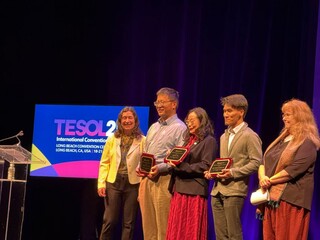Professor Angel Lin Mei-yi Shares Her Aspirations as Chair Professor at FHM
- 18 Jun, 2024
- Feature Stories
- Faculty of Humanities
The Faculty of Humanities (FHM) welcomes Prof Angel Lin Mei-yi, Chair Professor of Language, Literacy, and Social Semiotics in Education, a leading scholar in English education and critical literacies. With over 100 publications and more than 11,000 citations, her mentorship has shaped the research careers of many doctoral students and emerging scholars in Asia and Canada. The FHM Research Bulletin conducted a short interview with her to understand her aspirations for the role.
Vision and Leadership: Establishing FHM as a Leading Research Hub
Prof Lin envisions the Chair Professor position at FHM as pivotal in establishing the faculty and Department of English Language Education (ELE) as leading research hubs in English language education, with a strong emphasis on a digital humanities approach. This includes ethically engaging AI to enhance decolonial approaches to teaching English, addressing colonial perceptions of "standard" English. She aims to integrate AI as a multilingual mediator to decolonise English language education and disrupt the monolingual and Eurocentric epistemic dominance in TESOL and EMI research. Currently, Prof Lin and her team are developing the PAA (Plurilingualism, Affect, Agency) approach to challenge the monolingual and Eurocentric dominance in TESOL and EMI research, particularly in Asia. The PAA approach promotes plurilingualism by integrating multiple languages in education, attends to the emotional and affective well-being of teachers and students, and develops ethical and responsible Human-AI Collaboration Models to support and innovate language education. This aligns with FHM's research on cultures of care in education.
Mentorship and Student Development: Supporting Early Career Researchers
Prof Lin’s mentoring approach involves bridging together seasoned researchers with early career scholars globally. She collaborates with colleagues and young researchers in Japan, China, Thailand, Canada, and Europe, emphasising the importance of a global movement to decolonise TESOL. By connecting experienced scholars with young researchers working on multilingual assessment, she aims to form a global research network that leverages AI to disrupt coloniality in language education.
Emerging Trends and Challenges in TESOL and Language Education
Prof Lin highlights disrupting monolingual assessment in language education as a key emerging trend. She plans to form teams to propose symposiums and presentations at conferences like AAAL and AERA, linking young colleagues with established scholars from across the world including Prof Li Wei (University College London), Prof Ilana Shohamy (Tel Aviv University), and Prof Constant Leung (King's College London). Along with this, Prof Lin mentions that a major challenge is the entrenched interests of international assessment companies. To address this, she hopes to collaborate with forward-looking and innovative industry partners like Duolingo, which is receptive to multilingualism in assessment.
Plans for promoting international collaborations and partnerships
Prof Lin plans to leverage her extensive research networks developed over nearly 40 years to promote international collaborations. By connecting experienced and emerging researchers in areas such as assessment, language education, academic literacies, generative AI, and social semiotics, she aims to ensure continuity and innovation in scholarship. One initiative includes inviting renowned visiting professors such as Prof Paul Thibault (University of Agder, Norway) to contribute, aiming to develop a paradigm-shifting solid theoretical foundation for plurilingual assessment and decolonising TESOL.
Author/interviewer: Dr ZADOROZHNYY Artem






